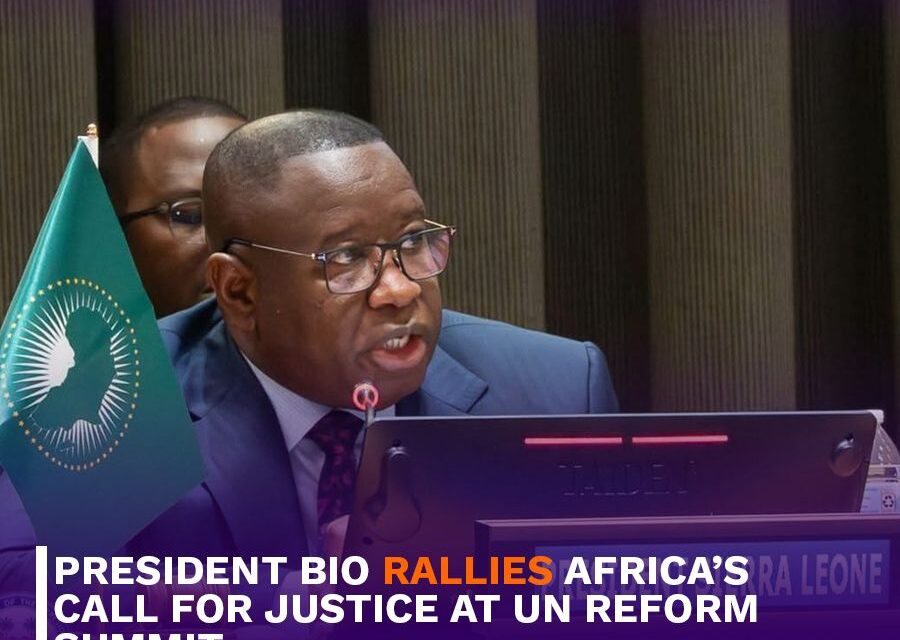New York- Sierra Leone’s President Julius Maada Bio has reignited Africa’s demand for permanent representation on the United Nations Security Council, declaring it a matter of justice, not charity.
Speaking at the Seventh Summit of the African Union Committee of Ten (C-10) on UN Security Council Reform, held at UN Headquarters in New York, President Bio, who chairs ECOWAS and coordinates the C-10, described the gathering as a landmark moment in Africa’s decades-long push for equity in global governance.
The summit coincided with the 20th anniversary of the Ezulwini Consensus and Sirte Declaration, which outline Africa’s Common Position: at least two permanent seats with veto power and two non-permanent seats on the Security Council.
“When the UN was founded in 1945, Africa had no voice,” President Bio told delegates. “Today, we remain the only continent without permanent representation, despite being central to the Council’s agenda. This is not a plea for favour. It is a demand to correct a historic wrong.”
The high-level meeting drew leaders from the ten C-10 member states of Algeria, Republic of the Congo, Equatorial Guinea, Kenya, Libya, Namibia, Senegal, Sierra Leone, Uganda, and Zambia, alongside Angolan President João Lourenço, Chair of the African Union and other key figures including Kenyan President William Ruto and Namibian President Netumbo Nandi-Ndaitwah.
President Bio praised Africa’s unwavering unity over two decades of advocacy. “Despite our diversity, we have never broken ranks. That unity is our strength. No reform can succeed without a united Africa,” he said.
He also spotlighted recent milestones, including the Freetown Retreat and Lusaka Ministerial Meeting, which produced the African Union Reform Model, a blueprint for structured negotiations.
President Bio urged permanent members of the Security Council to back their verbal support with political will. “Africa’s demand is legitimate, non-negotiable, and just,” he declared. “Equal representation for Africa is not only an African imperative, it is a global necessity.”









